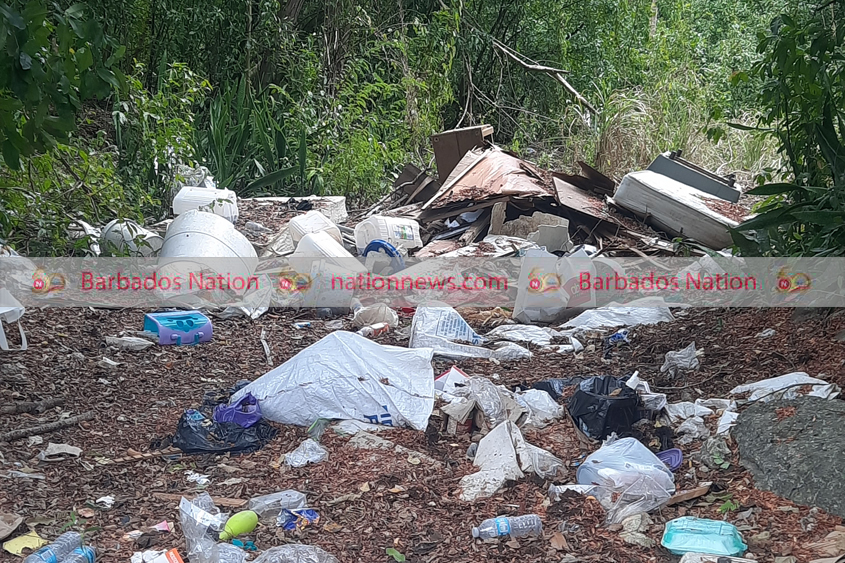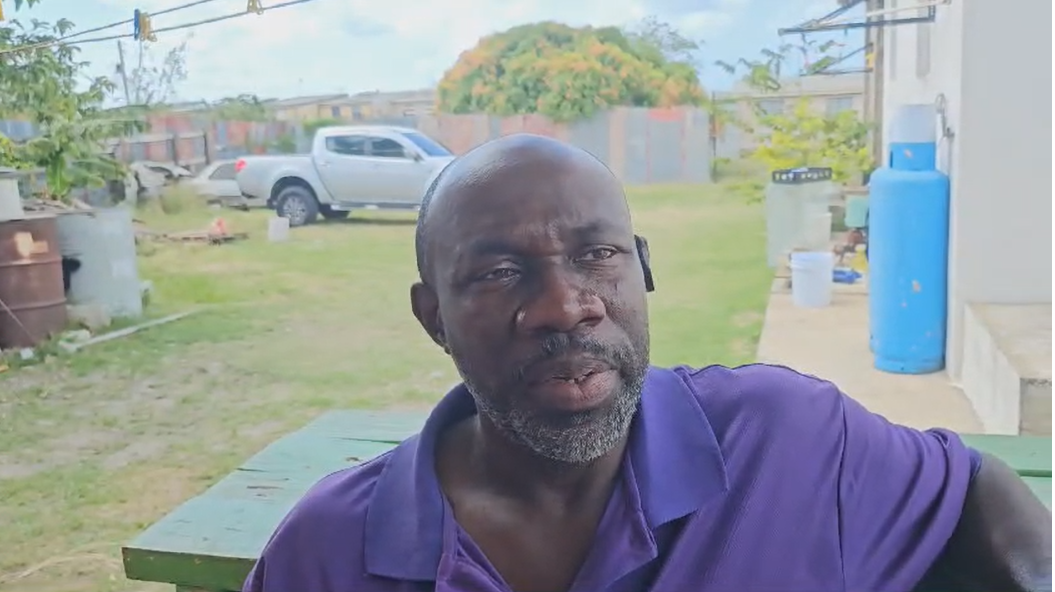

The National Conservation Commission (NCC) is removing tonnes of garbage – including bulk household waste – from parks and beaches daily, laments acting general manager Ryan Als.
He said that from Enterprise Beach in Christ Church to Folkestone, St James, they are getting an increasing number of calls to remove materials that were dumped overnight after NCC rangers had left for the day.
In response, activist Kammie Holder, chairman of the Future Centre Trust (FCT), is urging Government to institute a ticketing system that he believes can go a long way in curbing this behaviour.
Als, who was responding to a query from the DAILY NATION regarding a pile-up of rubbish, mainly biodegradable plastic containers and some clothing, left near the popular Brownes Beach, Bay Street, St Michael, said it was not beach users leaving this type of trash behind.
“People bring stoves, fridges, animal remains, beds. They are not items that are being used on the beach. People bring them from wherever, dump them on the beach and we have to remove them,” he said.
“We clean up at most beaches every afternoon after the crowd. By morning, we come back and we see people bringing household waste to the beach. They drop them and move, then we have to clean it up again.
“This is nothing new – it has been going on for decades. It is just that now, we find that it is more prevalent because we move garbage from the beach every day.
“So when you come in the morning, you see the garbage there, you know it’s not from beach use; it’s from persons who decided that they are going to make the beach a garbage dump.”
There are fines for dumping, but that falls under the Ministry of Health. Even so, Als said, these incidents occurred after the rangers were off duty at the end of the day.
“We have installed some cameras at some locations and once we get footage, we pass it to the authorities to deal with it,” he added.
He listed Enterprise (commonly known as Miami Beach) and Worthing Beach, and, to a lesser extent, Rockley Beach (known as Accra), as the main spots in Christ Church. There have also been instances at Pebbles. The number of instances at Brandons has decreased, but the practice is more common at Brownes Beach.
Als said Fitts Village and Folkestone in St James were also problem areas, and inland at Three Houses Park and King George V Memorial Park in St Philip, which he described as some of the more remote locations that were open to the public 24 hours a day. He added that this came at considerable cost to the NCC, both monetary and in the diversion of resources.
A NATION team came across an illegal dumping site on Waterford Plantation recently, and Holder said he saw one with roofing sheets and an old refrigerator at Bushy Park, St Philip, on Saturday.
He said initiatives like Clean Up Barbados, a joint effort by the FCT and The Nation Group of Companies, made a commendable effort to combat these poor disposal habits, but systemic issues and lacklustre policies were major hindrances.
“One glaring issue is the inadequate enforcement of existing anti-littering laws. While the idea of penalising individuals caught littering sounds promising, in practise it often amounts to empty rhetoric.
“Without consistent enforcement and visible consequences, these laws lose their deterrent effect. The island’s efforts to curb littering remain superficial, failing to address the root causes of the problem or change public behaviour.”
Holder said that for 15 years he tried to get successive governments to implement a ticketing system which ensured anyone dumping material would only be paid once they could prove it was placed at a legitimate site. He said a landscaper, for example, could drop trimmings anywhere once he left a property.
“Such permits would ensure that waste is disposed of properly and deter the illegal dumping of materials. Unfortunately, the Government’s reluctance to adopt such measures allows individuals to misuse public spaces as unofficial dumping grounds, leaving neighbourhoods and natural areas marred by debris.”
Holder also pointed fingers at some businesses which he said “put profits over people”, and one in particular that had “no corporate social responsibility”, consistently flouting the Returnable Containers Act by not charging a deposit on certain bottles.
“They cannot brag about the millions they make yearly and have no respect for our environment or people. Without people, you don’t have profits and you don’t have a company.”





